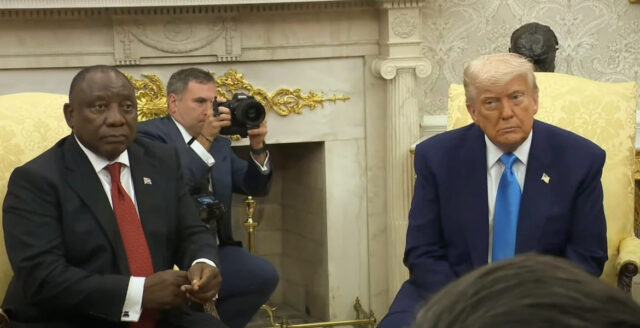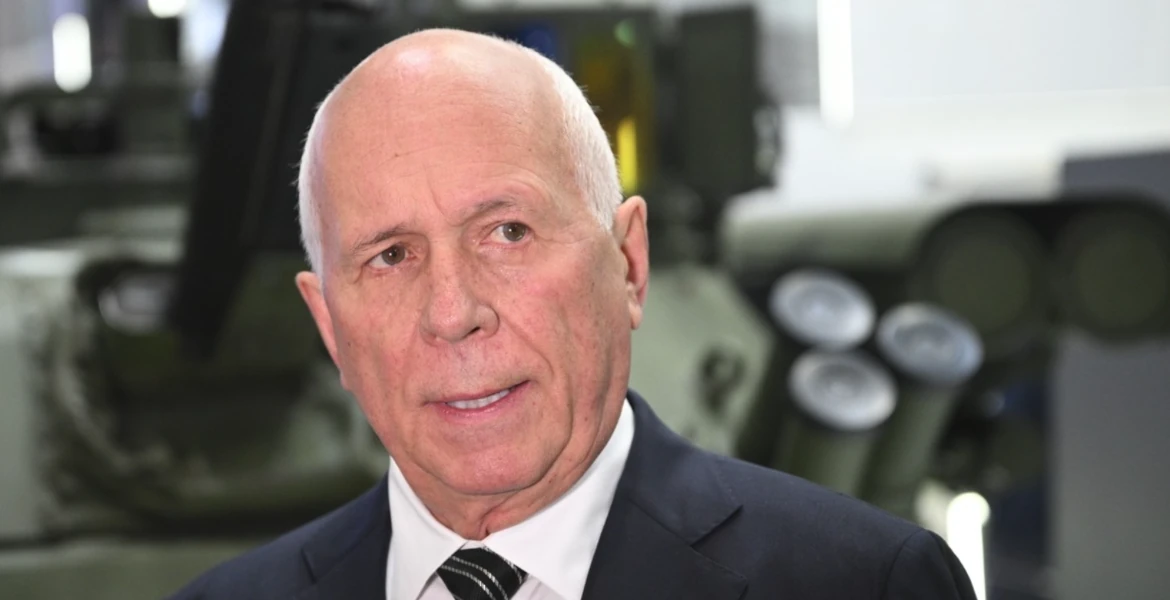Yossi Cohen, the former head of Israel's Mossad intelligence agency, is alleged to have threatened the chief prosecutor of the International Criminal Court in a series of secret meetings aimed at influencing and pressuring her not to open an investigation into Israeli war crimes.
Cohen's secret contacts with then ICC prosecutor Fatou Bensouda reportedly took place over several years before she decided in 2021 to open a formal investigation into alleged Israeli war crimes and crimes against humanity in the occupied Palestinian territories, according to a review by The Guardian.
Recently, Bensouda's successor, Karim Khan, also announced that he wants Prime Minister Benjamin Netanyahu and Defense Minister Yoav Gallant arrested for abuses and crimes committed during the ongoing invasion of Gaza.
Yossi Cohen served as the head of the Mossad between 2016 and 2021, and before that as Israel's national security adviser. According to sources, he was tasked with pressuring the ICC prosecutor not to open an investigation into Israel on the grounds that Israeli military personnel would be at risk of prosecution.

Another source says the Mossad's goal was to get Bensouda to agree to Israeli demands, and a third describes Cohen as Netanyahu's "unofficial messenger". The Mossad chief's attempts to pressure the prosecutor are said to have gone on for years, and she is also said to have informed other senior ICC officials of Cohen's threatening behavior.
"You should help us and let us take care of you. You don’t want to be getting into things that could compromise your security or that of your family", and similar threats were allegedly made by the chief of intelligence, among others.
"Threats and manipulation"
The goal of allegedly intimidating Bensouda was also directed at her family members, with transcripts of secret recordings of her husband then used to discredit the prosecutor.
The Mossad also enlisted the help of former Congolese President Joseph Kabila to pressure the prosecutor. When Bensouda went to meet him in his New York hotel room, the prosecutor's staff was suddenly asked to leave the room - and the Mossad chief entered through a door instead. Again, the situation was reportedly perceived as threatening.
On another occasion, Cohen allegedly called Bensouda repeatedly, and when she asked him how he got her number, the spy chief allegedly replied, "did you forget what I do for a living?"
Initially, Yossi Cohen also allegedly tried to "build a relationship" with the ICC prosecutor, but when that did not work, he began using "threats and manipulation" instead, according to a person with insight into the meetings.
Targeted the family
In December 2019, the prosecutor announced that she had grounds to open a full criminal investigation into allegations of war crimes in Gaza, the West Bank, and East Jerusalem. However, she delayed the opening of the investigation and decided to first request a decision from the ICC's Pre-Trial Chamber to confirm that the Court has jurisdiction over Palestine.
At this point, Cohen allegedly escalated his attempts to pressure Bensouda not to pursue a full investigation. Between 2019 and 2021, the spy chief allegedly initiated at least three physical meetings and displayed behavior so threatening and obsessive that he was likened to a stalker.

A source familiar with Bensouda's accounts of her last two meetings with Cohen said he raised questions about her and her family's safety in a way she found threatening.
On another occasion, Cohen allegedly showed Bensouda copies of photographs of her husband that had been secretly taken when the couple visited London. On another occasion, Cohen allegedly suggested to the prosecutor that a decision to open a full investigation would be detrimental to her career.
The Mossad is said to have actively sought leverage and compromising information on the prosecutor and her family, as well as attempting to smear Bensouda's husband through diplomatic channels. Someone also spied on her husband and secretly recorded his conversations - but it is unclear whether the Mossad itself was behind the operation or whether the material was simply accessed.
Getting Trump on board
However, the attempts to undermine and smear the prosecutor were largely unsuccessful - although they did prompt then-US President Donald Trump and his administration to also publicly and privately pressure Bensouda and her staff.
Between 2019 and 2020, in an unprecedented move, the Trump administration imposed visa restrictions and sanctions on the attorney general. Officially, this was because Bensouda was conducting a separate investigation into US war crimes in Afghanistan - but analysts say the sanctions were actually a joint Israeli-US action.

In February 2021, the ICC's Pre-Trial Chamber issued a decision confirming that the ICC had jurisdiction over the occupied Palestinian territories. The following month, Bensouda announced the opening of the investigation.
Her successor also under threat
Three months later, she left her post and was replaced by Karim Khan, who recently requested an arrest warrant for Prime Minister Benjamin Netanyahu.
According to the Guardian's sources, this "was the conclusion Israel’s political, military and intelligence establishment had feared".
"The fact they chose the head of Mossad to be the prime minister’s unofficial messenger to [Bensouda] was to intimidate, by definition", said a source with insight into Cohen's operation. "It failed", the source concludes.
It should also be noted that the new ICC prosecutor, Karim Khan, has been subjected to veiled threats and influence campaigns by both Israeli and American politicians to prevent him from investigating Netanyahu or other Israeli officials for war crimes.

The Nordic Times previously reported on how a group of pro-Israeli republicans threatened the prosecutor's staff and family, promising in part, "If you target Israel, we will target you".





